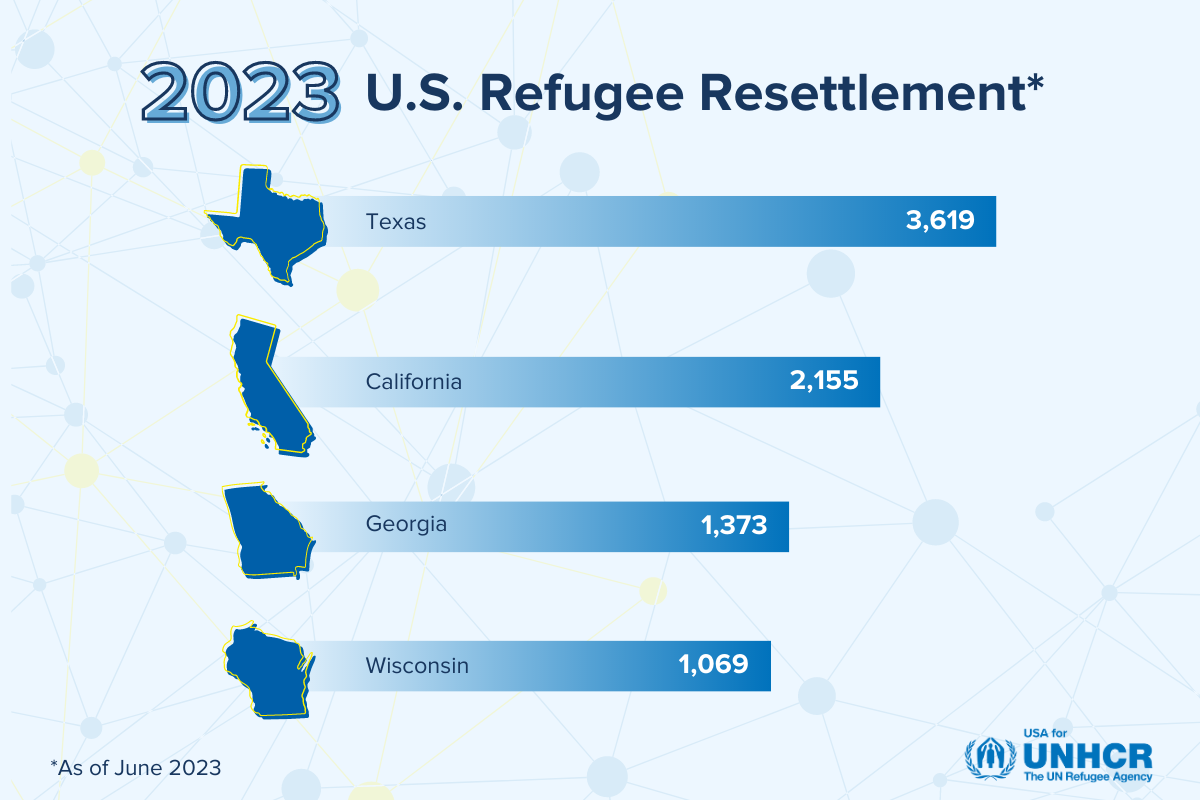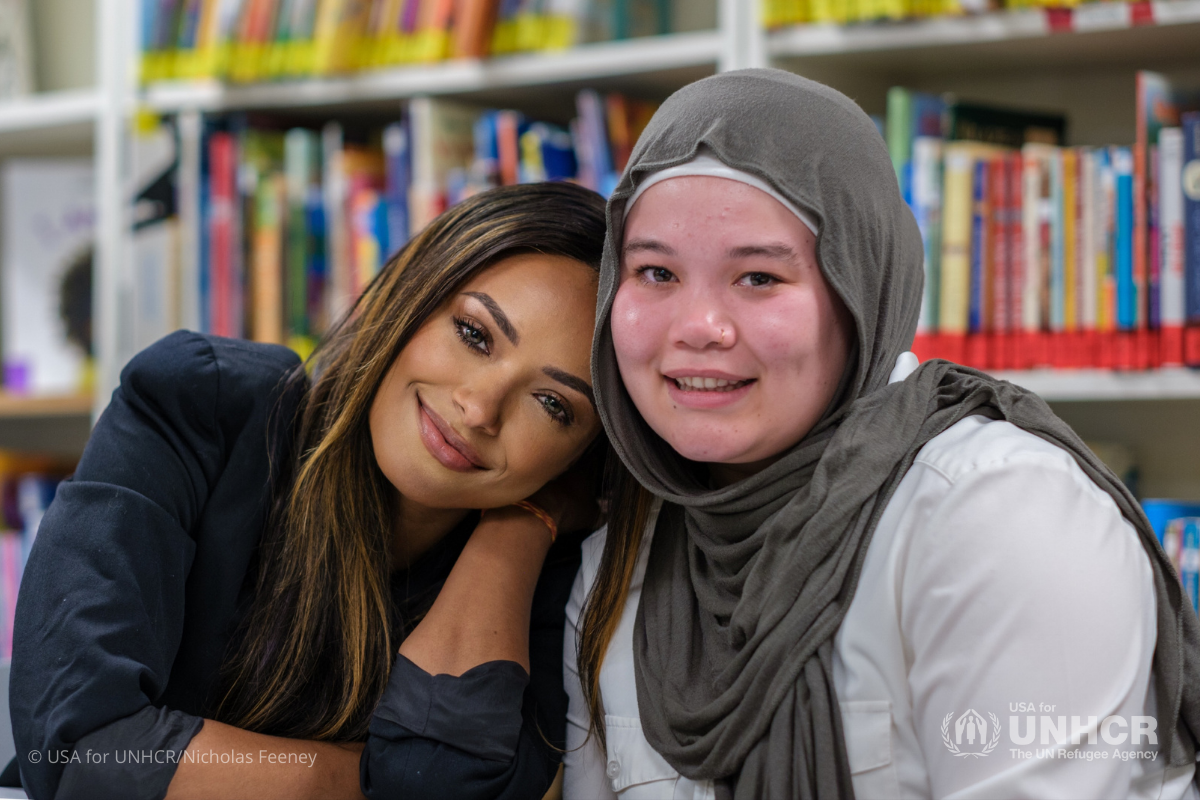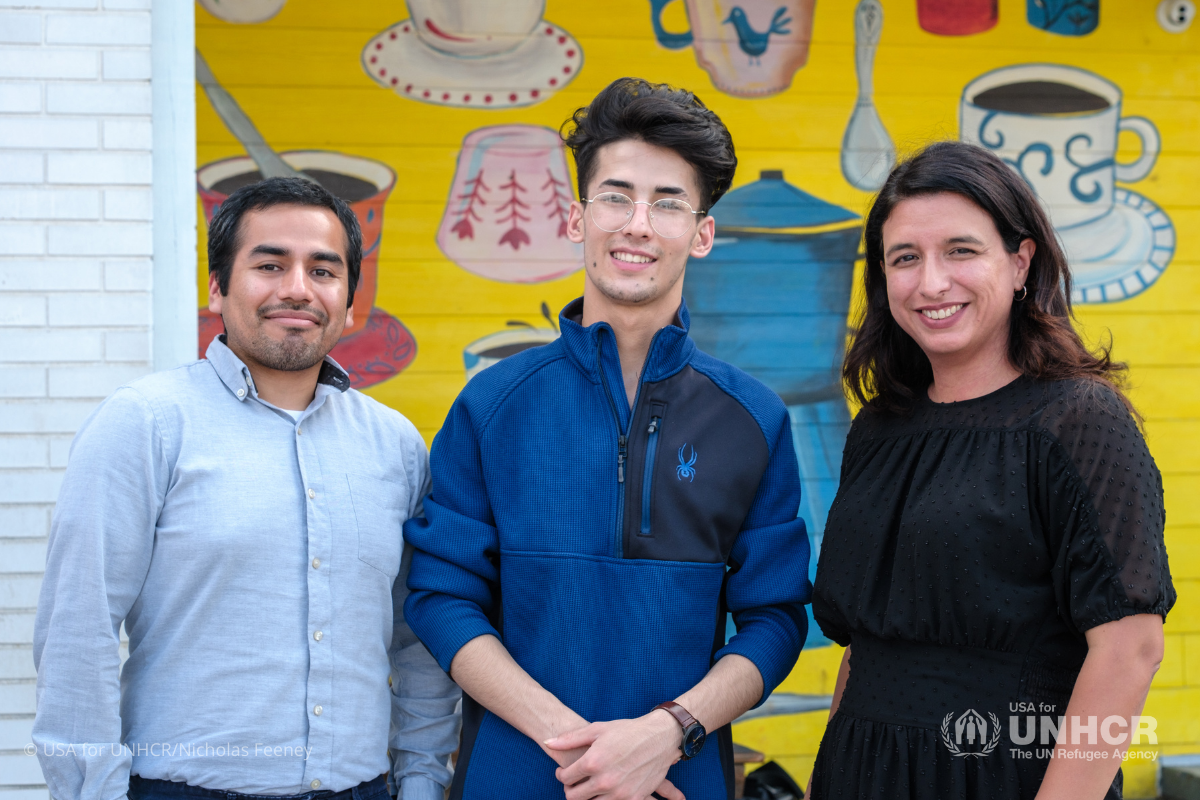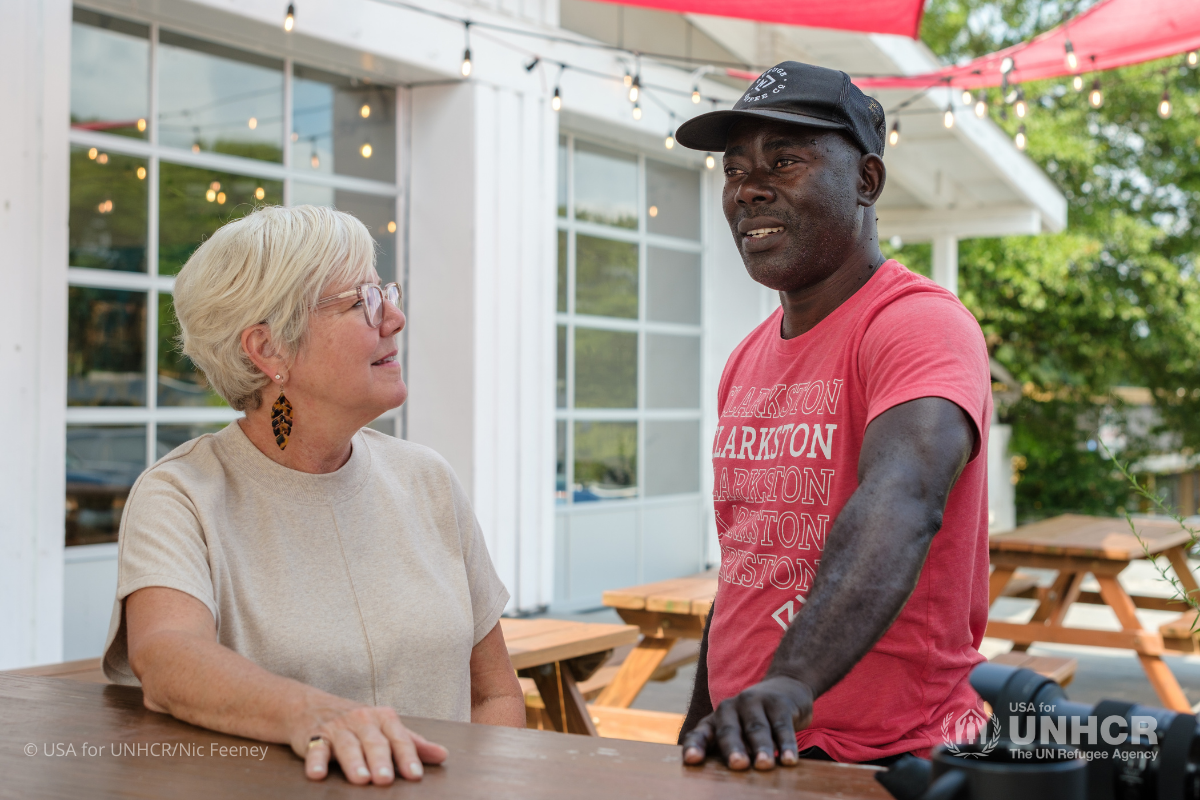Five Things to Know About Refugees in Atlanta
Atlanta is one of the fastest growing metropolitan cities in the United States, home to nearly 500,000 people. Known for its busy airport and its important role in Civil Rights history, Atlanta attracts millions of visitors each year — but what few may know about Atlanta is that it is also one of the most welcoming cities in America for refugees.
For decades, refugees have moved to metro Atlanta in search of a better life, settling in suburbs outside of the city and enriching their communities with cultural diversity and economic prosperity. Learn more about the history of refugees in Atlanta, how the city continues to welcome them today and learn about the amazing contributions they’re making to their new community.
1. Why are refugees resettling in Atlanta?
Founded in 1837, Atlanta, Georgia is a major metropolitan city in the U.S. with a rich history and diverse arts and culture. Since the 1970s, the city has attracted tens of thousands of refugees and immigrants who arrive in hopes of starting a new life. Georgia regularly ranks as one of the top ten most welcoming states in America — resettling approximately 2,500-3,500 refugees each year.

Atlanta’s immigrant population has grown tremendously in the last two decades. In the late 1980s, metro Atlanta was a prime resettlement location for refugees who were attracted by the city’s robust economic growth. Today, refugees and immigrants make up more than 10 percent of Georgia’s population and at least 63,000 refugees now call the Peach State home.
As traditional immigrant gateways like Los Angeles and New York become increasingly unaffordable, small and mid-sized cities like metro Atlanta are becoming important emerging communities providing refugees with greater access to affordable housing, jobs and resources.
2. Where are refugees in Atlanta arriving from?
Atlanta’s population continues to grow and diversify in part due to decades of immigration and refugee resettlement. Vietnamese, Cambodian, Ethiopian and Eritrean refugees were among the earliest refugees to resettle in Atlanta. Since then these families have laid down roots and established enduring communities across the region.
In 2022, at least 1,061 refugees were resettled across Georgia from 16 different countries including the Democratic Republic of the Congo, Ethiopia, Sudan, Syria, Ukraine and Venezuela where ongoing crises have forced people to flee in search of safety. Refugees who were resettled in Georgia were placed across 20 counties.

3. What is the significance of Clarkston, Georgia?
Clarkston is a small city in Dekalb County, Georgia located 10 miles from downtown Atlanta. In the last four decades, Clarkston has welcomed tens of thousands of refugees and immigrants who were drawn to the city by its affordable housing options, access to public transportation and proximity to downtown Atlanta. The city is affectionately referred to as the “Ellis Island of the South'' and is considered the most ethnically diverse square mile in America.
Since 1980, more than 60,000 refugees have relocated to the city and its surrounding area. The first wave of refugees to resettle in Clarkston in the 1980s were Vietnamese and refugees from other Southeast Asian countries. Refugee resettlement and immigration to Clarkston increased significantly during the 1990s - the city’s foreign-born population was 9 percent in 1990 and doubled by 1995. Today, the city is home to African (Somali, Eritrean, Ethiopian, Sudanese, Congolese), Asian (Bhutanese, Cambodian, refugees from Myanmar) and Syrian arrivals.
Nearly half of Clarkston’s residents are foreign-born — there are more than 150 different ethnic groups represented who speak 60 different languages. Clarkston welcomes approximately 1,500 refugees each year with the support of refugee resettlement agencies and refugee-supporting businesses in the community.
4. What support is available to refugees in Atlanta?
Georgia is home to several refugee resettlement agencies that have helped refugees find new homes in the state for more than four decades. Resettlement agencies like the International Rescue Committee, New American Pathways and Catholic Charities Atlanta assist refugees to find housing and employment, register for school or language classes and connect them with necessary social and health services. In 2022, it is estimated that 87 percent of refugees were employed and self-sufficient within 8 months of resettlement and nearly 160 housing units were successfully secured for refugees.
Refugee-led businesses and organizations in Atlanta are also empowering refugees to succeed. Refuge Coffee Co., a refugee-led non-profit based in Clarkston, is providing job training and employment opportunities to newly resettled refugees. Seventy percent of all trainees and staff members are refugees or immigrants and women make up 74 percent of staff. Refugee Congress is a national nonpartisan organization built and led by former refugees, asylum-seekers, and other vulnerable migrants from all 50 states that advocate for policies and practices that positively impact their communities.
In addition to resettling refugees and providing them with vital services, Atlanta remains a center of activism for refugee and immigrant rights. In 2021, the Georgia House of Representatives unanimously passed HR 11 to form the House Study Committee on Innovative Ways to Maximize Global Talent — a bi-partisan initiative to support the economic contributions and workforce participation of Georgia's foreign-born population. On December 10, 2021, the Study Committee issued these five recommendations:
- Remove barriers to admission at Georgia public colleges
- Invest in English learning instruction
- Streamline requirements for experienced professionals to re-enter their fields
- Support childcare entrepreneurs and expand access to childcare
- Incentivize entrepreneurship programs
5. How are refugees giving back in Atlanta?

Refugees who resettle in Atlanta contribute to historic racial, cultural and economic changes that have undeniably shaped the city’s growth. Refugees bring invaluable knowledge and skills to the workforce and make tremendous contributions to Atlanta’s economy as earners, taxpayers and consumers. Refugees boast high rates of entrepreneurship. According to the American Immigration Council, of the more than 63,000 refugees who call Georgia home, at least 5,146 are entrepreneurs, bringing in over $108.9 million annually. Refugees in Georgia are employed, tax-paying members of the state with the potential to contribute an estimated $1.9 billion to the economy.
Refugees come from all over the world and bring with them rich cultures, customs and traditions that enrich their local communities and foster greater appreciation for diversity. In addition to the contributions refugees make to the city’s economy, they are also helping shape Atlanta’s social fabric. “Clarkston has welcomed more than 40,000 refugees from every corner of the world over the last 40-plus years, and their homegrown businesses make our city unique,” said Ted Terry, Mayor of Clarkston, Georgia. “But more than that, they’ve turned a once-fading community, situated in the suburbs east of Atlanta, into a safer, more prosperous place for everyone. The same thing is happening in other small towns and rural communities where refugees settle, across every state in the union.”

Resettled refugees like Abdallah Al-Obaidi who come to the U.S. after fleeing conflict or war are giving back to their communities in impactful ways. Now a medical student, Abdallah was a first responder during the COVID-19 pandemic. Resettled refugees like Abdallah are making an invaluable impact in the communities they now call home and while the extent of their contributions can never fully be measured, they can always be felt.
How can you help
You can support refugees in their journey to safety by becoming USA for UNHCR’s newest donor. Your support will help increase humanitarian aid and improve daily living conditions for millions of individuals who have been forced to flee their homes and safe havens.


